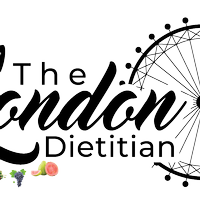In the world of nutrition science, there are a lot of big, sciencey-sounding words that get thrown about with people repeating them and not actually knowing what they mean. One of these is plant sterols and this has been used in the context of lowering cholesterol.
First things first, let’s discuss what plant sterols actually are. These are naturally occurring compounds found in all plants and they can indeed reduce cholesterol levels. They do this by preventing cholesterol from being absorbed in the first place, while also increasing how much of it is removed from the body.
Studies have shown that when people consume 1.5-3g of plant sterols daily, they can reduce their cholesterol by 7-12%. The problem is while these sterols are indeed naturally occurring, it is difficult to consume them from the diet in sufficient amounts. For example, for people who follow a diet rich in meat, fish and plants, they would get approximately 400mg of sterols per day. People who follow a mostly plant-centered diet would average approximately 600mg daily, falling well short of the therapeutic amount.
Therefore, people wanting to reduce their cholesterol through plant sterols will need to supplement with plant sterols or consume foods/drinks that have been enriched with them. This can be achieved with the following:
One sterol mini yoghurt drink daily (i.e benecol).
OR
Two or three portions per day of foods enriched with sterols. One portion of such a food will be:
- 10g (two teaspoons) of enriched spread
- One glass of enriched milk
It is important to note that the effects of the sterols will only work for the duration that you take them. If you stop taking them, the benefits they exert will also cease. It is also important to take them with meals- one mistake many people make is having a drink such as benecol as a stand-alone drink.
Now that we’re discussed what they are and how they work, let’s get into any potential side effects. The good news is that there has been no evidence to suggest that sterols may be harmful to health. There have been some suggestions that they may reduce the absorption of some fat-soluble vitamins but this appears to be offset by ensuring that you are having a nutrient-rich diet.
Furthermore, they have also been shown to be safe for people already taking cholesterol-lowering medications such as fibrates and statins. Since sterols and these medications work in different ways to lower cholesterol, taking them both can actually result in a larger reduction in cholesterol rather than just taking the medication alone.
‘And can these be taken instead of changing the diet’?, I hear you ask. Simply put, sterols are not to be used as a substitute for following a healthy diet, rather as an add-on. Think of them like the icing on the cake, and focus your efforts primarily on making long-term changes to your diet and lifestyle.
If you have been struggling to lower your cholesterol and would like some help with your diet, then click here and book in for a FREE strategy call to find out how I can help you lower your cholesterol through sustainable and practical dietary changes.

